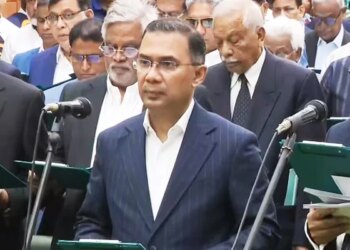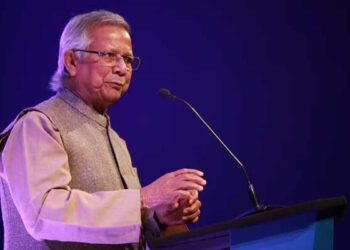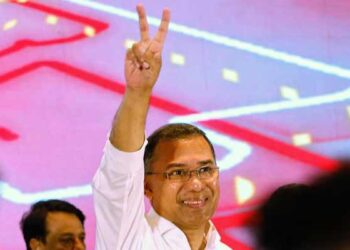Select Language:
Understanding the Recent German Parliamentary Elections
Germany has recently experienced a significant shift in its political landscape following the parliamentary elections. The results have drawn attention not only for their immediate implications but also for what they reveal about the electorate’s sentiment. Here’s a closer look at the key outcomes of the election, the reactions from various parties, and the implications for the future of German politics.
Overview of Election Results
The freshly elected German parliament stands as a testament to the changing preferences of the German electorate. The election witnessed a considerable turnout of 82.5%, marking one of the highest participation rates in decades. This surge in civic engagement highlights the public’s growing interest in political affairs, particularly in light of the recent government performance.
Decline of the Traffic Light Coalition
The so-called traffic light coalition, which comprised the Social Democrats (SPD), the Greens, and the Liberal Democrats (FDP), faced a severe setback. Under the leadership of outgoing Chancellor Olaf Scholz, the SPD recorded its worst-ever result at the federal level since World War II. This decline in support reflects widespread dissatisfaction with their governance and policies.
Rise of the CDU/CSU
Conversely, the Christian Democratic Union (CDU) and its sister party, the Christian Social Union (CSU), emerged as the largest faction in the new Bundestag, despite suffering their second-worst results in history. With their fortunes rising, the parties are expected to play a pivotal role in the formation of the new government, setting the stage for Friedrich Merz to potentially become the country’s next chancellor.
Implications of the Electoral Landscape
The implications of the recent election are profound, particularly given the rise of the far-right Alternative for Germany (AfD), which significantly increased its voter base by nearly doubling its share from the previous election cycle. This outcome raises questions about the direction of German politics and the potential for increased polarization within the electorate.
Coalition Possibilities
With the liberal democrats (FDP) and the newly formed Sarah Wagenknecht Alliance (BSW) failing to clear the 5% threshold for Bundestag representation, the CDU/CSU and SPD now possess the required majority to establish a new government independently. This situation marks a departure from the previously established trend of multiparty coalitions, potentially stabilizing political governance in the short term.
Friedrich Merz’s Vision
In the wake of this electoral shift, Friedrich Merz’s rhetoric during the campaign indicates a significant ideological pivot. Merz declared, “The left is over,” promising a governance style that would mark a departure from what he terms the "left majority." His statements signal a clear intent to realign policies further to the right, appealing to conservative voters who feel marginalized by previous administrations.
Language and Public Sentiment
Merz’s choice of language has drawn comparisons to populist leaders like Donald Trump, which may resonate within certain voter blocs accustomed to combative and colorful political discourse. By painting his adversaries as "green and leftist nutjobs," Merz positions himself as a champion of more conservative and traditional values.
The Future of German Politics
As Germany braces for this political transition, the focus will be on how the newly formed government navigates challenges like economic recovery, immigration policy, and social cohesion. There is also the pressing concern of balancing the demands of a diverse electorate that is increasingly polarized.
The Role of the AfD
The resurgence of the AfD presents a unique challenge for the mainstream parties, as their growing influence may force the CDU/CSU and SPD to reconsider their strategies in engaging with the electorate. The mainstream parties may need to address the concerns raised by far-right sentiments while refraining from endorsing policies that further fuel division.
A Changing Political Climate
The electoral results indicate a potential realignment of political allegiances in Germany, with traditional parameters of left and right being tested. As any governing coalition shapes its policies, the dynamics between the established parties and emerging political factions will be crucial in determining Germany’s path forward on both domestic and international fronts.
With the CDU/CSU at the helm and Merz likely to lead, observers will closely monitor the changes in governance approach and the reactions of the electorate moving forward. This new chapter in German politics may reshape not only the country itself but also its role on the European stage amidst ongoing discussions about unity and stability within the EU.







